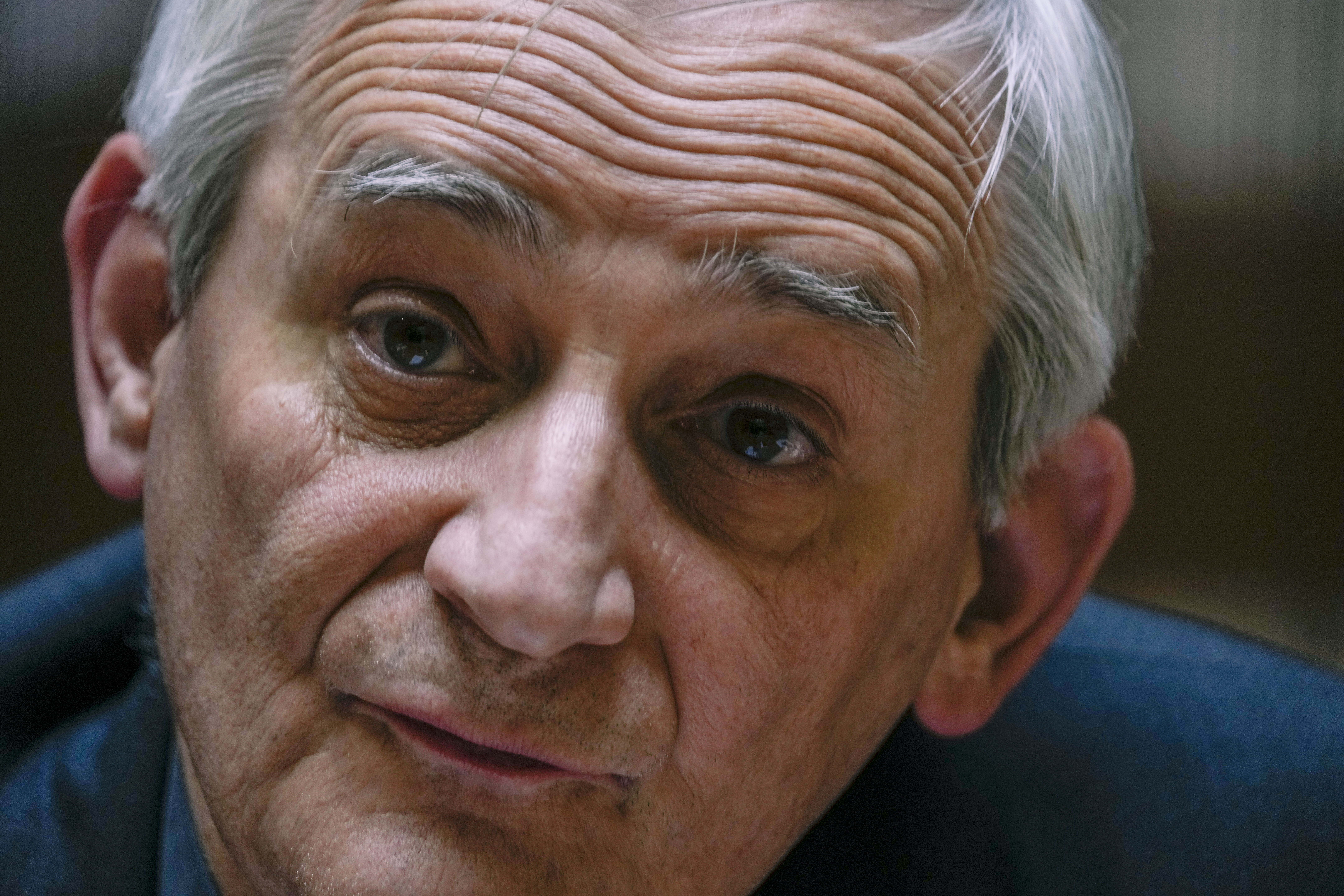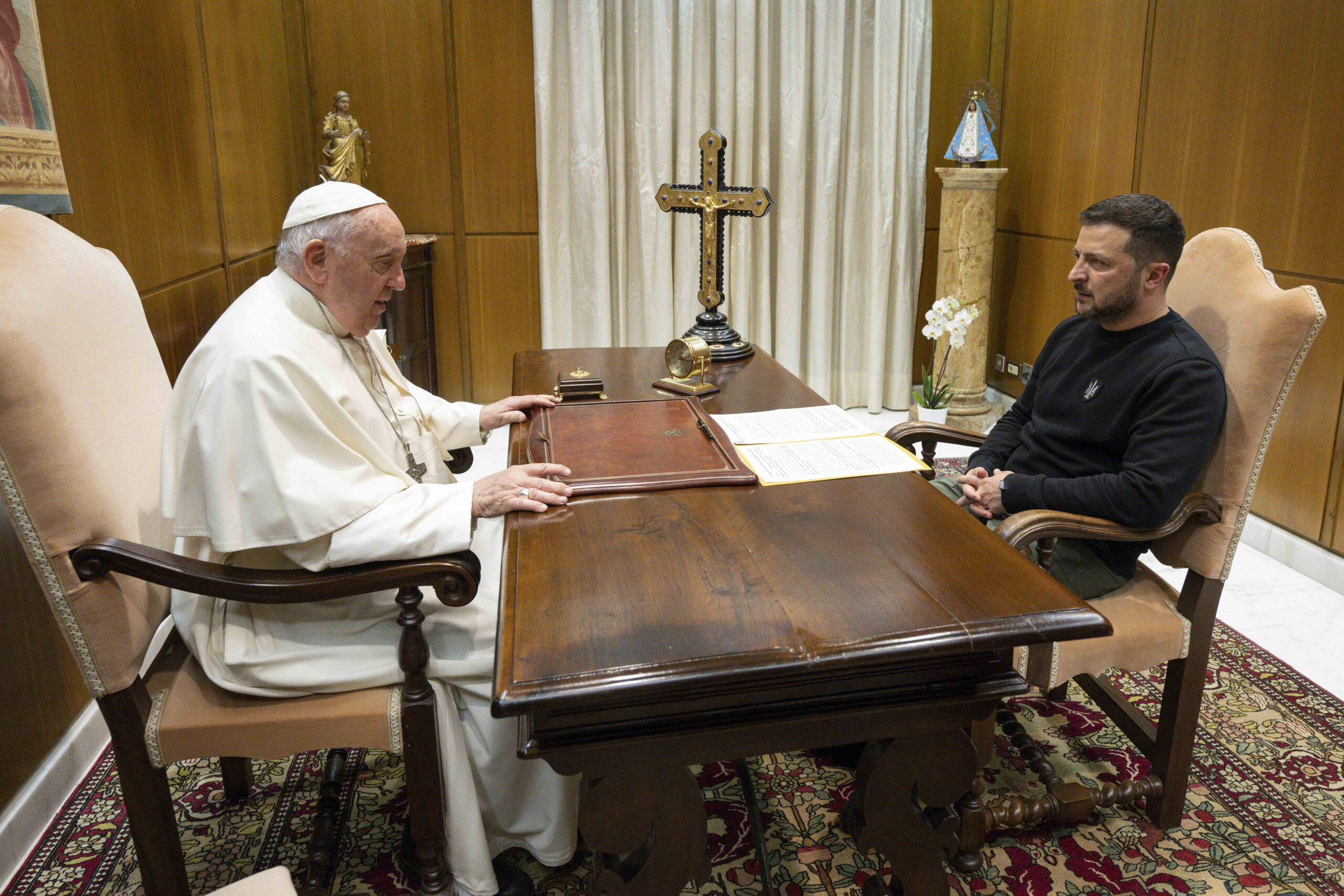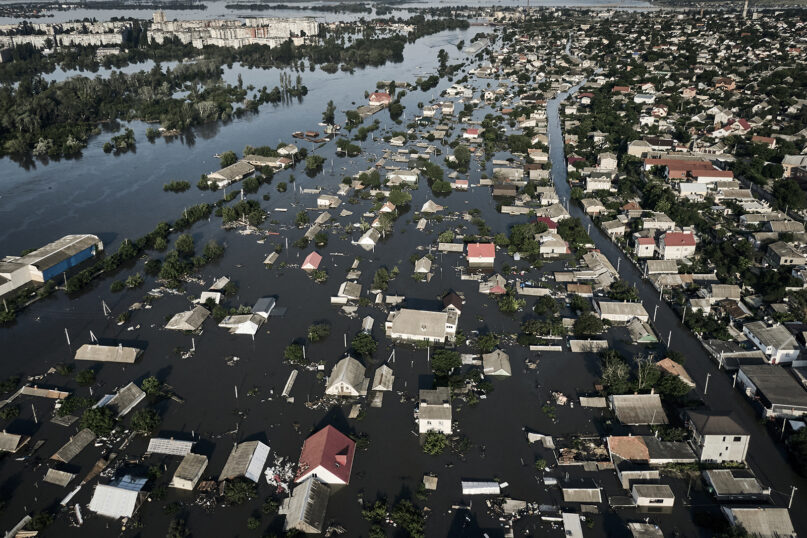VATICAN CITY (RNS) — Sent on a papal mission for peace, Italian Cardinal Matteo Zuppi returned from Kyiv on Tuesday amid mixed reactions from the champions and skeptics of Pope Francis’ efforts to mediate in the Russian-Ukrainian conflict.
Pope Francis sent Zuppi, who heads the Italian Bishops’ Conference and has extensive experience in peace-building projects, to the Ukrainian capital June 5-6 where he met with religious and political representatives, including President Volodymyr Zelenskyy. The objective of the mission, the Vatican said, was to listen to parties involved in order to promote a “just peace.”
What a “just peace” means to Kyiv and Moscow, let alone the West and other stakeholders, may be very different things, and many question whether the Vatican can wield enough influence to bring the opposing sides to any common ground.
After his meeting with Zuppi, Zelenskyy wrote on the messaging app Telegram that “only united efforts, diplomatic isolation and pressure on Russia” can “bring a just peace to the Ukrainian land.”
For Pope Francis, bringing about peace cannot happen without dialogue between all parties involved, including Russia and its president, Vladimir Putin. The pope has avoided explicitly calling out Russia as the aggressor or condemning the Kremlin for its actions in the war in hopes of keeping the door open for the Vatican to act as a negotiator.
Many Ukrainians have expressed disappointment in the pope’s unwillingness to take their side in the conflict, while Zelenskyy made it clear after his meeting with Zuppi that, while Ukraine “welcomes the readiness of other states and partners to find ways to peace,” ultimately it will be up to Ukraine to determine the “algorithm for achieving peace.”

Cardinal Matteo Zuppi, head of the CEI (Italian Conference of Bishops) speaks during a press conference at the Vatican, Thursday, May 25, 2023. (AP Photo/Domenico Stinellis)
Zuppi’s peace mission in Ukraine occurred shortly before the 25th anniversary of the death of another Vatican diplomat from Italy who grappled with the aftermath of the Cold War, Cardinal Agostino Casaroli. Known as the “father of Ostpolitik,” he carried out the Vatican’s 1970s diplomacy policy with countries in the Soviet bloc in a similar manner, aimed at not condemning communism in exchange for protection of Catholics living behind the Iron Curtain. Casaroli greatly influenced the church’s international profile today.
While speaking before newly minted cardinals in August of last year, Pope Francis praised Casaroli for “supporting, with wise dialogue, the new horizons of Europe after the Cold War,” and warned against the political blindness that risks closing those horizons once more.
A large part of how the Vatican handles its diplomatic efforts is by offering charitable support for those who are affected the most by the crisis. In Kyiv, Zuppi met with the parliamentary commissioner for human rights, Dmytro Lubinets, to address the question of the many Ukrainian children who have gone missing since the onset of the war.
“Russia has already abducted over 19,000 children, and those are just the cases we know of — we know the Russians also deliberately change their names and birth dates so their parents cannot find them,” alleged Major Archbishop of the Ukrainian Greek Catholic Church Sviatoslav Shevchuk on Monday.
Shevchuk has been a strong advocate for Ukrainians on the ground since the beginning of the conflict, urging the international community to take Russia to task for its human rights violations in the war.
Vatican Secretary of State Cardinal Pietro Parolin, who is supporting Zuppi in working toward peaceful solutions, praised the latest mission as a sign of the “additional contribution the Holy See can give toward peace,” but emphasized the importance of Vatican diplomacy with Moscow as well.
“The pope’s idea was that of a mission that would take place in both capitals,” he told reporters on Wednesday; “that solution should remain open.”
Zuppi expressed uncertainty about visiting Moscow or meeting with Patriarch Kirill, the head of the Orthodox Church in Russia. Speaking to journalists on Wednesday, Zuppi said his latest trip “was not a mediation, but a manifestation of interest, closeness, listening, so that the conflict might find paths toward peace.” He dismissed all other theories about the pope’s mission as “hopes or speculations.”
Overshadowing the trip was the unfolding destruction of the Nova Kakhovka dam and the flood that followed, which some observers have described as “an ecological catastrophe.” It remains unclear whether Russia or Ukraine is responsible for the incident, with both sides blaming the other. Zuppi voiced “concern” over the attack and described the ravaged city of Bucha as “the most harrowing moment of the trip.”

This image made available by Vatican News shows Pope Francis meeting Ukrainian President Volodymyr Zelenskyy during a private audience at the Vatican, Saturday, May 13, 2023. (Vatican News via AP)
In Ukraine, where only 5% of the population is Catholic, the papal mission for peace “has no real prospect,” according to Dominican Father Jaroslaw Krawiec. Speaking to Swiss news outlet Cath.ch, the Ukrainian priest said that, while the humanitarian work the church does in Ukraine is greatly appreciated, the same cannot be said for its offers to mediate a peace.
“I share in the opinion by many commentators that Pope Francis, and the Holy See in general, cannot play a decisive role in this conflict,” Krawiec said, adding the pope’s decision “to put on the same level all the victims of the war, without truly pointing out the aggressors, hurt people.” He said the pope’s meeting with Zelenskyy at the Vatican in May had nearly no news coverage in Ukraine.
Government diplomats from seven African countries hope to meet with diplomats from Russia and Ukraine later this month. With other countries stepping up to promote peace in the conflict, some question whether it makes sense for the Vatican to stubbornly offer its mediation.
Maria Zakharova, a spokesperson for the Ministry of Foreign Affairs of the Russian Federation, said in a statement that, while there are currently no plans for a meeting in Moscow, the Kremlin “looks favorably at the Vatican efforts to put an end to the conflict in Ukraine.”
This is reassuring for those who believe a lasting peace is not possible without Russia having a seat at the negotiating table. “It’s a sign of hope,” said Mons. Paolo Pezzi, the Catholic archbishop in Moscow and president of the bishops in the Russian federation. “The visit by Cardinal Zuppi and the humanitarian efforts are two small flames that shed a little light in the pitch black. I am not a dreamer, I am aware of the challenges, but I don’t care. I care about those little lights.”
While Pope Francis recovers at the hospital after a surgery to remove an incisional hernia, Vatican diplomacy efforts are planned to continue.
“Pope Francis won’t give up,” Zuppi said, “so much so that he wanted this mission because he doesn’t want to surrender and wishes to find anything that can bring about a path toward peace.”





